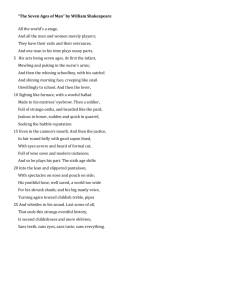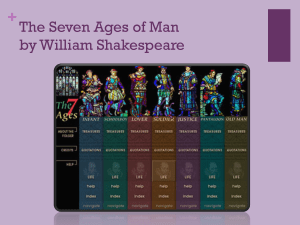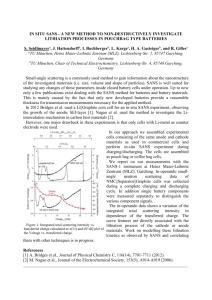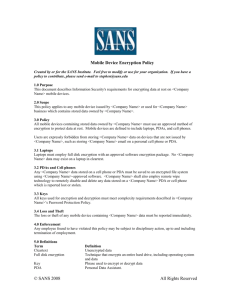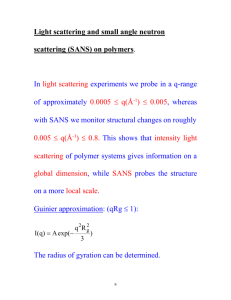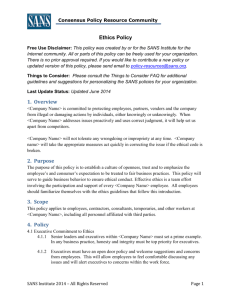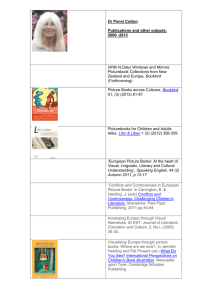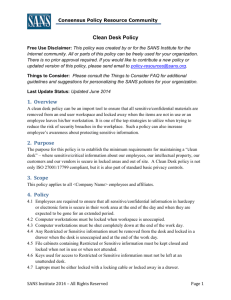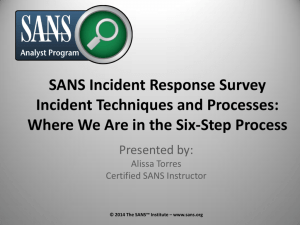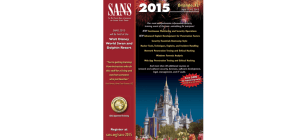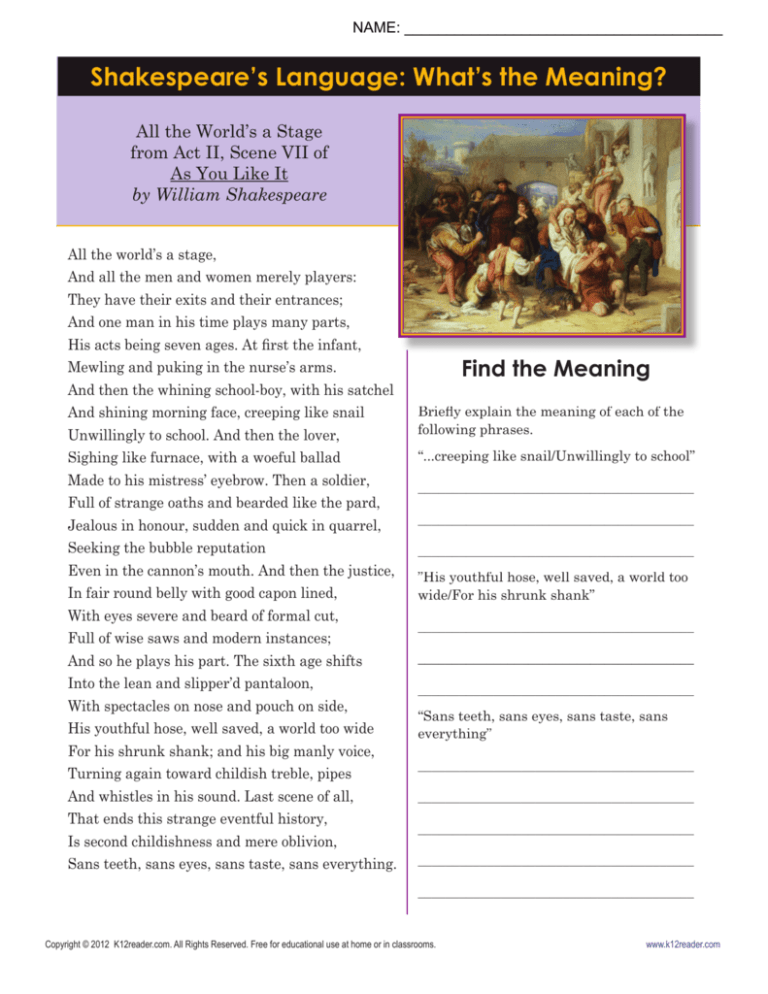
NAME: ______________________________________
Shakespeare’s Language: What’s the Meaning?
All the World’s a Stage
from Act II, Scene VII of
As You Like It
by William Shakespeare
All the world’s a stage,
And all the men and women merely players:
They have their exits and their entrances;
And one man in his time plays many parts,
His acts being seven ages. At first the infant,
Mewling and puking in the nurse’s arms.
And then the whining school-boy, with his satchel
And shining morning face, creeping like snail
Unwillingly to school. And then the lover,
Sighing like furnace, with a woeful ballad
Made to his mistress’ eyebrow. Then a soldier,
Full of strange oaths and bearded like the pard,
Jealous in honour, sudden and quick in quarrel,
Seeking the bubble reputation
Even in the cannon’s mouth. And then the justice,
In fair round belly with good capon lined,
With eyes severe and beard of formal cut,
Full of wise saws and modern instances;
And so he plays his part. The sixth age shifts
Into the lean and slipper’d pantaloon,
With spectacles on nose and pouch on side,
His youthful hose, well saved, a world too wide
For his shrunk shank; and his big manly voice,
Turning again toward childish treble, pipes
And whistles in his sound. Last scene of all,
That ends this strange eventful history,
Is second childishness and mere oblivion,
Sans teeth, sans eyes, sans taste, sans everything.
Find the Meaning
Briefly explain the meaning of each of the
following phrases.
“...creeping like snail/Unwillingly to school”
________________________________________
________________________________________
________________________________________
”His youthful hose, well saved, a world too
wide/For his shrunk shank”
________________________________________
________________________________________
________________________________________
“Sans teeth, sans eyes, sans taste, sans
everything”
________________________________________
________________________________________
________________________________________
________________________________________
________________________________________
Copyright © 2012 K12reader.com. All Rights Reserved. Free for educational use at home or in classrooms.
www.k12reader.com
NAME: ______________________________________
Shakespeare’s Language: What’s the Meaning?
All the World’s a Stage
from Act II, Scene VII of
As You Like It
by William Shakespeare
All the world’s a stage,
And all the men and women merely players:
They have their exits and their entrances;
And one man in his time plays many parts,
His acts being seven ages. At first the infant,
Mewling and puking in the nurse’s arms.
And then the whining school-boy, with his satchel
And shining morning face, creeping like snail
Unwillingly to school. And then the lover,
Sighing like furnace, with a woeful ballad
Made to his mistress’ eyebrow. Then a soldier,
Full of strange oaths and bearded like the pard,
Jealous in honour, sudden and quick in quarrel,
Seeking the bubble reputation
Even in the cannon’s mouth. And then the justice,
In fair round belly with good capon lined,
With eyes severe and beard of formal cut,
Full of wise saws and modern instances;
And so he plays his part. The sixth age shifts
Into the lean and slipper’d pantaloon,
With spectacles on nose and pouch on side,
His youthful hose, well saved, a world too wide
For his shrunk shank; and his big manly voice,
Turning again toward childish treble, pipes
And whistles in his sound. Last scene of all,
That ends this strange eventful history,
Is second childishness and mere oblivion,
Sans teeth, sans eyes, sans taste, sans everything.
Find the Meaning
Actual answers will vary. Examples
of correct answers:
Briefly explain the meaning of each of the
following phrases.
“...creeping like snail/Unwillingly to school”
The school boy doesn’t want to go
________________________________________
to school, so he walks very slowly,
________________________________________
like a snail.
________________________________________
”His youthful hose, well saved, a world too
wide/For his shrunk shank”
In his older years, the man’s body
________________________________________
has gotten smaller. His clothes are
________________________________________
loose and baggy.
________________________________________
“Sans teeth, sans eyes, sans taste, sans
everything”
The elderly man has aged to the
________________________________________
point that he has lost his teeth, his
________________________________________
eyesight and his sense of taste. He
________________________________________
will soon lose his life which is the
________________________________________
most important thing he has.
________________________________________
Copyright © 2012 K12reader.com. All Rights Reserved. Free for educational use at home or in classrooms.
www.k12reader.com

